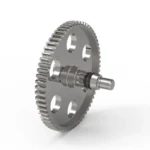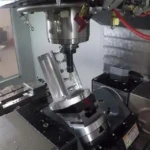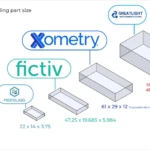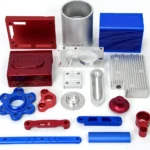The Comprehensive Guide to Advanced Materials for Plastic Molds
In the manufacturing industry, the development of advanced materials for plastic molds has played a crucial role in shaping the production of high-quality plastic products. The selection of the right mold material is crucial, as it directly affects the performance and longevity of the product. In this blog post, we will delve into the world of advanced materials for plastic molds, exploring their characteristics, applications, and advantages.
Introduction to Advanced Materials for Plastic Molds
Mold steel is a type of steel alloy used to manufacture molds, dies, and other precision tools. These alloys have a unique combination of properties, such as high-strength, high-temperature resistance, and corrosion resistance, which make them ideal for applications in the plastic molding industry.
Steel Alloys for High-Performance Plastic Molds
There are several steel alloys that are commonly used in the production of high-performance plastic molds. These alloys are selected based on their ability to withstand high temperatures, resist corrosion, and exhibit good wear resistance. Some of the most popular steel alloys for plastic molds include:
- Hot Work Steel: These steels are designed for high-temperature applications and are commonly used in the production of hot stamping molds, hot extrusion molds, and hot shear blades.
- Cold Work Steel: These steels are designed for low-temperature applications and are commonly used in the production of cold stamping molds, cold forming molds, and precision parts.
- High-Speed Steel: These steels are designed for high-speed cutting and machining and are commonly used in the production of cutting tools, drills, and milling cutters.
Characteristics of Advanced Materials for Plastic Molds
Advanced materials for plastic molds exhibit several key characteristics that make them ideal for high-performance applications. These characteristics include:
- High Hardness: Advanced materials for plastic molds have high hardness, which makes them resistant to wear and tear.
- High Temperature Resistance: These materials can withstand high temperatures, making them suitable for high-temperature applications.
- Corrosion Resistance: Advanced materials for plastic molds exhibit excellent corrosion resistance, making them suitable for use in harsh environments.
- Wear Resistance: These materials are designed to withstand wear and tear, making them ideal for high-temperature and high-wear applications.
- Dimensional Stability: Advanced materials for plastic molds maintain their shape and size even under extreme temperature and stress conditions.
Applications of Advanced Materials for Plastic Molds
Advanced materials for plastic molds have a wide range of applications in the manufacturing industry. Some of the most common applications include:
- Plastic Molds: These materials are used to manufacture molds for plastic parts, such as injection molding, extrusion, and blowing molding.
- Cutting Tools: Advanced materials for plastic molds are used to manufacture cutting tools, such as cutting tools, drills, and milling cutters.
- Precision Parts: These materials are used to manufacture precision parts, such as gears, bearings, and other mechanical components.
- Aerospace Industry: Advanced materials for plastic molds are used in the production of aerospace components, such as aircraft and spacecraft parts.
Conclusion
In conclusion, advanced materials for plastic molds have revolutionized the manufacturing industry by providing a range of high-performance materials for mold production. By understanding the characteristics and applications of these materials, we can better select the right material for our specific requirements. Whether you are looking to manufacture high-temperature molds or precision parts, advanced materials for plastic molds are an excellent choice.
















